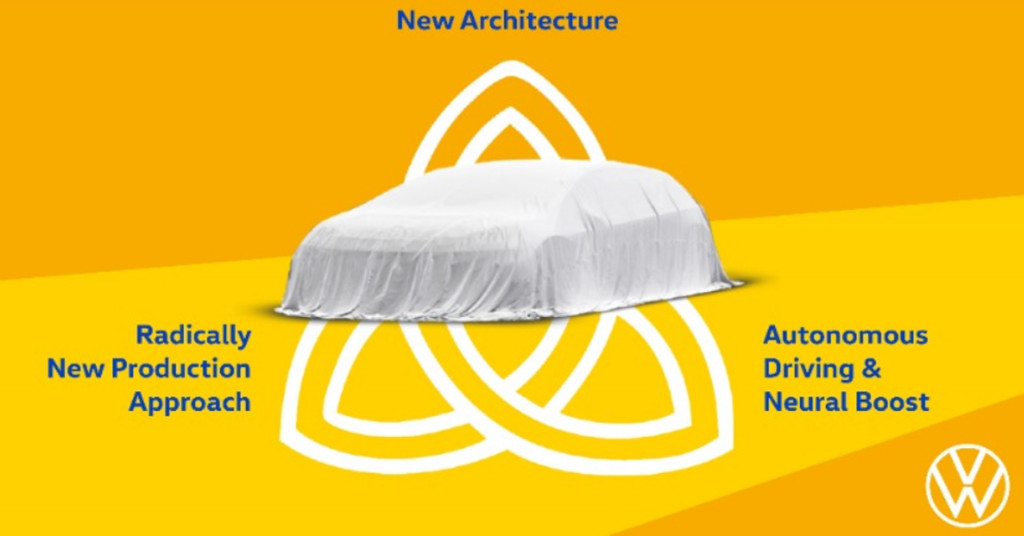Volkswagen Group last month announced plans for an electric vehicle from its Volkswagen brand to be built using highly automated production methods that are still in development.
The automaker said it established a skunkworks team to develop the efficient new production methods, which will initially be introduced with the mystery vehicle at a plant in Wolfsburg, Germany. The plant, located on the same site as VW Group's headquarters, is currently the exclusive home of VW Golf production.
Now we have fresh details via a Linkedin post made this week by VW brand boss Ralf Brandstaetter.
The vehicle is code-named Project Trinity, to reflect the three main tenets it represents: a new platform, new production processes, and self-driving technology integrating artificial intelligence.

Volkswagen Project Trinity: Flagship electric vehicle in the works
In describing it, Brandstaetter called it a “highly efficient flat-seat concept with an iconic design.” He also said the vehicle will set standards for range, charging speed and digitalization, and feature a high level of self-driving capability.
Brandstaetter said the vehicle will rank at “level 2+” on the SAE scale of self-driving capability, which means the vehicle will be able to function on its own in a wide range of areas but will still require monitoring from the driver at all times. Level 3 is the first stage where a driver doesn't need to monitor at all times.
Interestingly, he also revealed that VW will adopt a neural network to help guide its self-driving cars. Think of it as a form of artificial intelligence where computers “learn” how to perform actions on their own, i.e. without the need to be explicitly programmed with pre-defined algorithms, typically via trial and error. In the case of self-driving cars, data is gathered initially from a human doing the driving. The AI then looks for patterns in the data and then predicts an outcome. As more and more test miles are driven, the system becomes more refined. Brandstaetter said VW will work with other VW Group brands to build up the neural network. It's a technique Tesla has largely pioneered among major automakers
Note, Project Trinity isn't the production version of the ID.Vizzion sedan concept that VW will put into production at a plant in Emden, Germany, in 2023. The production ID.Vizzion, code-named Aero-B, is expected to replace the Arteon which is currently in production at the Emden plant. Sedan and wagon body styles are planned for the Aero-B, and we could see both reach the United States.

Ralf Brandstaetter
Rather, Project Trinity is to be another new addition serving as a technological flagship for the VW brand, a bit like the ill-fated Phaeton VW finally phased out in early 2016. At the time, VW said a new Phaeton with a battery-electric powertrain was in the planning, so perhaps this is that car.
Previous rumors point to it being a large sedan to challenge the Tesla Model S. Those rumors also point to it being based on a separate platform to the so-called Landjet EVs for Audi, Bentley and Porsche being developed on VW Group's PPE platform.
It's still early days as the Project Trinity isn't expected to reach production until the middle of the decade. Bernd Osterloh, who represents VW Group employees, last fall called for production of an EV to be added to the Wolfsburg plant by that date.
Stay tuned.
